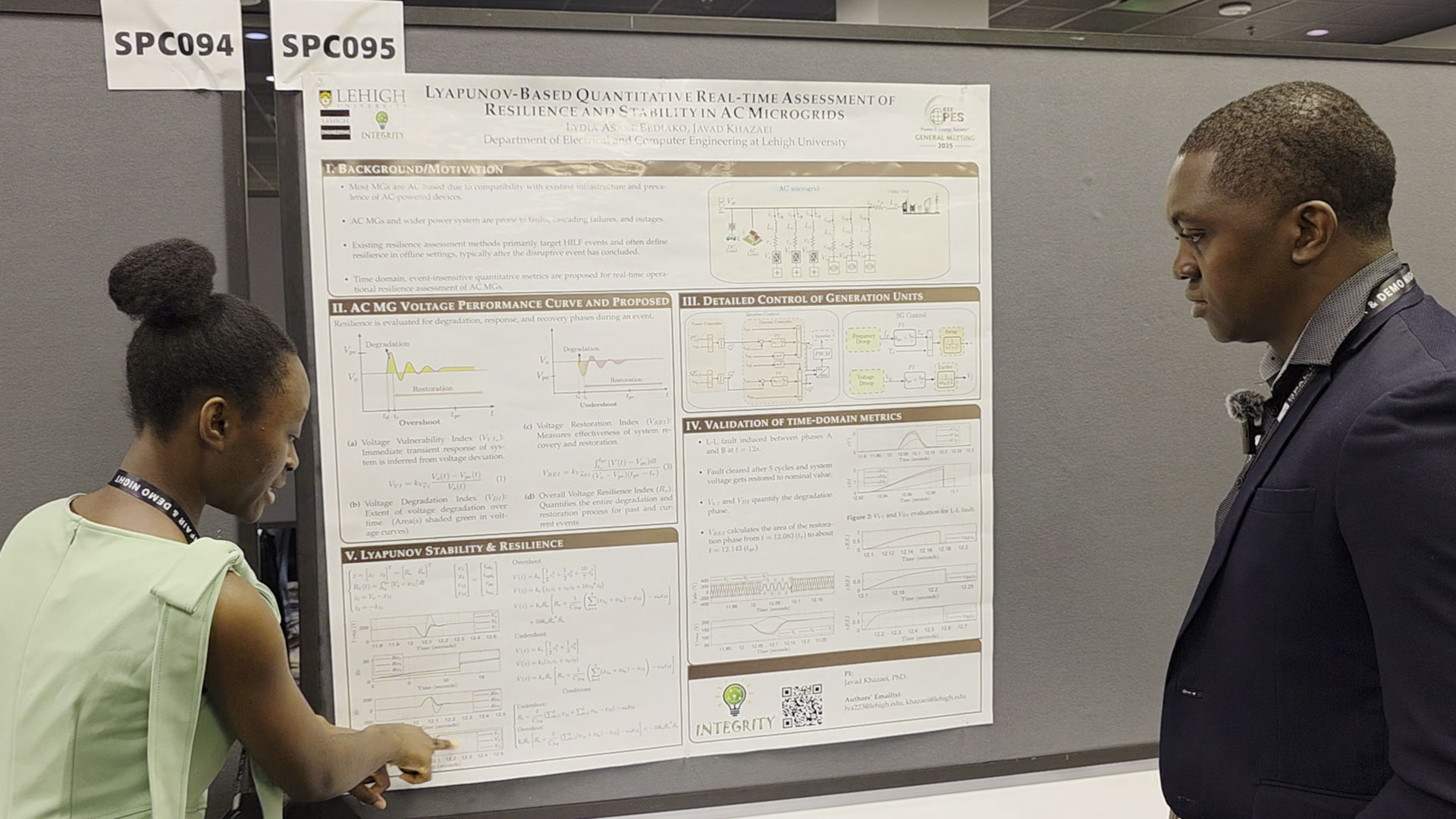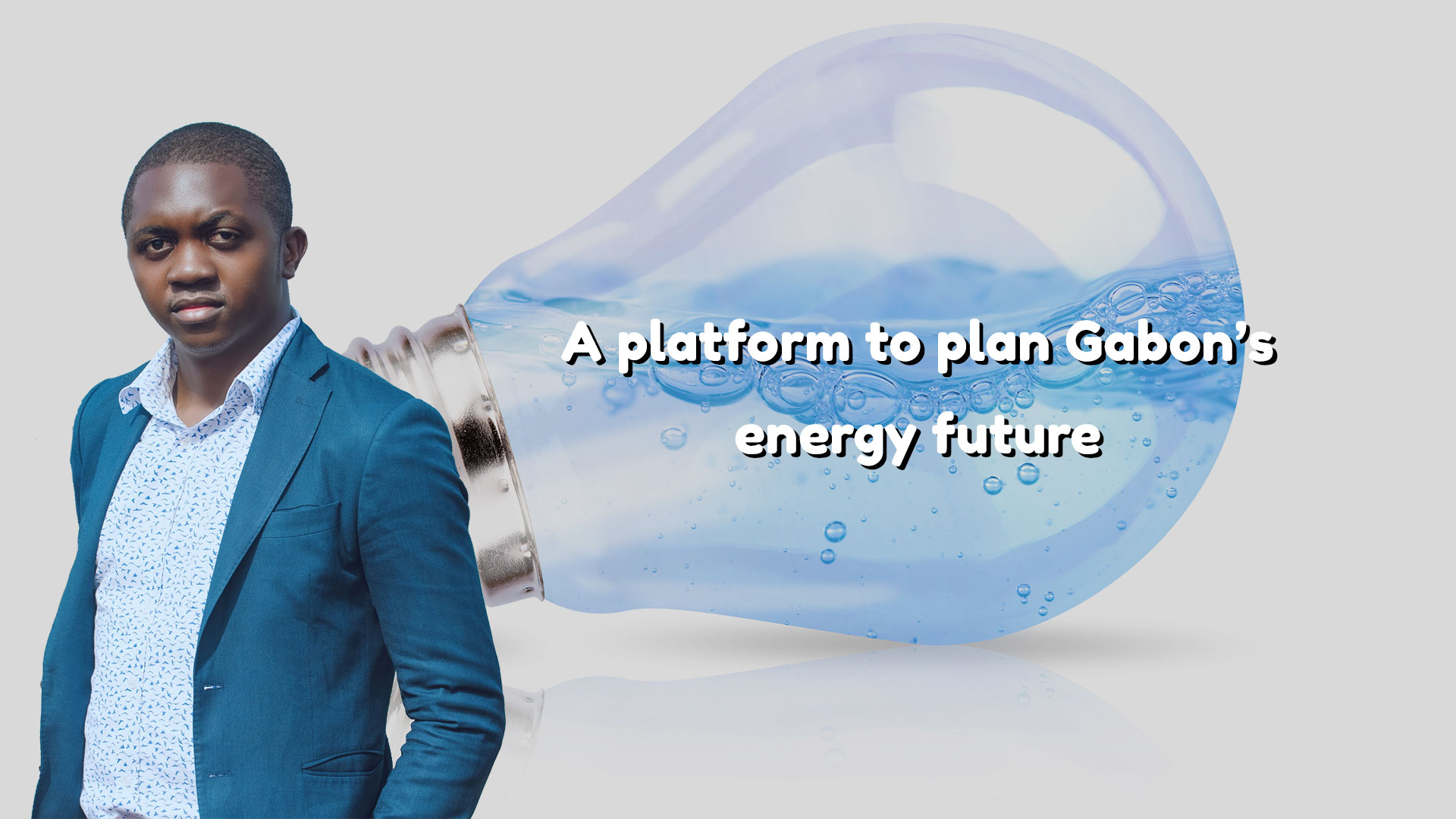As part of the IEEE PES General Meeting 2025, I had the pleasure of interviewing Ms. Lydia Asare Bediako, a Ghanaian Ph.D. student at Lehigh University (Bethlehem, Pennsylvania, USA).
In this conversation, she shared her research on the resilience and stability of AC microgrids - a project that combines renewable energy sources and conventional generation to create smarter, more robust electrical networks.
In this interview, Lydia Asare Bediako explains how she models a microgrid integrating both renewable sources (solar, batteries, hydro) and conventional generators (natural gas, diesel).
Her goal is clear: to develop practical indicators that measure a system’s ability to absorb a disturbance, restore voltage quickly, and maintain stability, without relying on complex mathematical calculations.
By using indices such as the Voltage Degradation Index (VDI) and the Restoration Index (RI), combined with Lyapunov stability theory, Lydia proposes a method capable of anticipating and correcting network weaknesses before they compromise power supply. It’s promising work that fits perfectly into the transition toward smarter, more reliable, and more resilient electrical grids.
Why This System Could Benefit Gabon
Currently in Gabon, voltage management on certain power lines has relied for over ten years on manual adjustments using capacitor banks. This non-automated process creates several problems: slow intervention times, imprecise settings, and difficulty responding quickly to load variations. The direct consequence is that customers located at the end of the network sometimes receive insufficient voltage, which degrades service quality and can damage electrical equipment.
The automated system proposed could:
-
Automate voltage adjustment in real time, without constant human intervention.
-
Divide and manage the network by sections, allowing faster isolation of problem areas and localized voltage control.
-
Significantly reduce response times to load variations, improving both stability and service quality.
-
Protect customer equipment and extend the lifespan of electrical infrastructure.
By adopting this type of technology, Energy companies could move from a manual, reactive correction model to a predictive and proactive management approach; an important step toward a more reliable and modern power network in Gabon.
Steven OBAME











